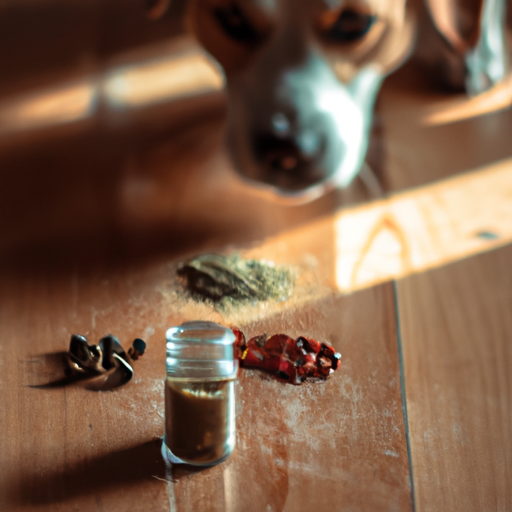Just like us humans, our furry friends also have a palate that appreciates variety. But, what spices do dogs like? Can they savor flavors like us? Or, should they even have spices in their diet? As a caregiver to your loyal companion, you may be curious about the potential addition of spices in your dog’s meals. Let’s get into the answers!
Table of Contents
- Understanding Your Dog’s Taste Buds
- Safe Spices for Dogs
- Unsafe Spices for Dogs
- How to Introduce Spices to Your Dog’s Diet
- Frequently Asked Questions
Key Takeaways:
- Dogs can enjoy certain spices in their diet.
- There are safe and unsafe spices for dogs.
- Always introduce new food items, including spices, gradually.
- Consult with your vet before making significant changes to your dog’s diet.
Understanding Your Dog’s Taste Buds
Canines experience tastes differently than humans. While we have around 9,000 taste buds, dogs only have about 1,700. This means their perception of taste is not as nuanced as ours. A dog’s primary tastes are sweet, sour, salty, and bitter. Dogs also have taste cells that are sensitive to water, which is something we humans lack.
Safe Spices for Dogs
There are a few spices that are not only safe but can also be beneficial for dogs. Always remember to use them sparingly, as too much can upset your dog’s stomach or cause other health issues.
-
Turmeric: This spice is known for its anti-inflammatory properties and can be beneficial for dogs with arthritis or other inflammatory conditions. This article from the American Kennel Club provides further insight into the benefits of Turmeric for dogs.
-
Ginger: Ginger can help with nausea and digestion issues in dogs. It should be used in small quantities.
-
Cinnamon: Cinnamon can help regulate blood sugar and lower cholesterol levels in dogs. However, it should be used sparingly to avoid irritating the mouth or stomach.
-
Basil: This herb can boost your dog’s immune system and protect against free radicals.
Remember, not all herbs and spices are safe for dogs. This guide on OneTopDog.com provides a more comprehensive list of safe herbs and spices for dogs.
Unsafe Spices for Dogs
Some spices can be harmful or even toxic for dogs, including:
- Nutmeg: This spice contains a toxin called myristicin which can cause hallucinations and high heart rate in dogs.
- Onion and Garlic Powder: These spices can cause anemia in dogs.
- Cocoa Powder: Contains theobromine, a substance that’s toxic for dogs.
For a more in-depth look at foods that could be dangerous for your dog, check out this article on OneTopDog.com.
How to Introduce Spices to Your Dog’s Diet
Before adding any new ingredients to your pet’s diet, consult with your vet. Once you get the green light, introduce spices gradually to monitor your dog’s reaction. Start with a very small amount, and if you notice any negative reactions, discontinue use immediately.
Frequently Asked Questions
1. Can dogs eat spicy food?
No, dogs should not eat spicy food. Capsaicin, the compound that makes food spicy, can cause stomach upset, diarrhea, and vomiting in dogs.
2. Can dogs taste spices?
Yes, dogs can taste spices. However, their taste buds are not as sensitive as ours, so they may not respond to flavors the same way we do.
3. Is it okay to give my dog food seasoned with spices?
It depends on the spice. Some spices, like turmeric, ginger, cinnamon, and basil, can be beneficial for dogs. However, others, like nutmeg, onion powder, garlic powder, and cocoa powder, can be harmful.
4. How much spice can I give my dog?
Always start with a very small amount. Too much of any spice can upset your dog’s stomach.
In conclusion, while dogs are not the spice enthusiasts that we are, they can still enjoy and benefit from certain spices. However, it’s essential to remember that not all spices are safe for dogs, so always do your research and consult with your vet before introducing new elements to their diet. For more tips on dog nutrition, check out this post on the best dog food brands on OneTopDog.com.



